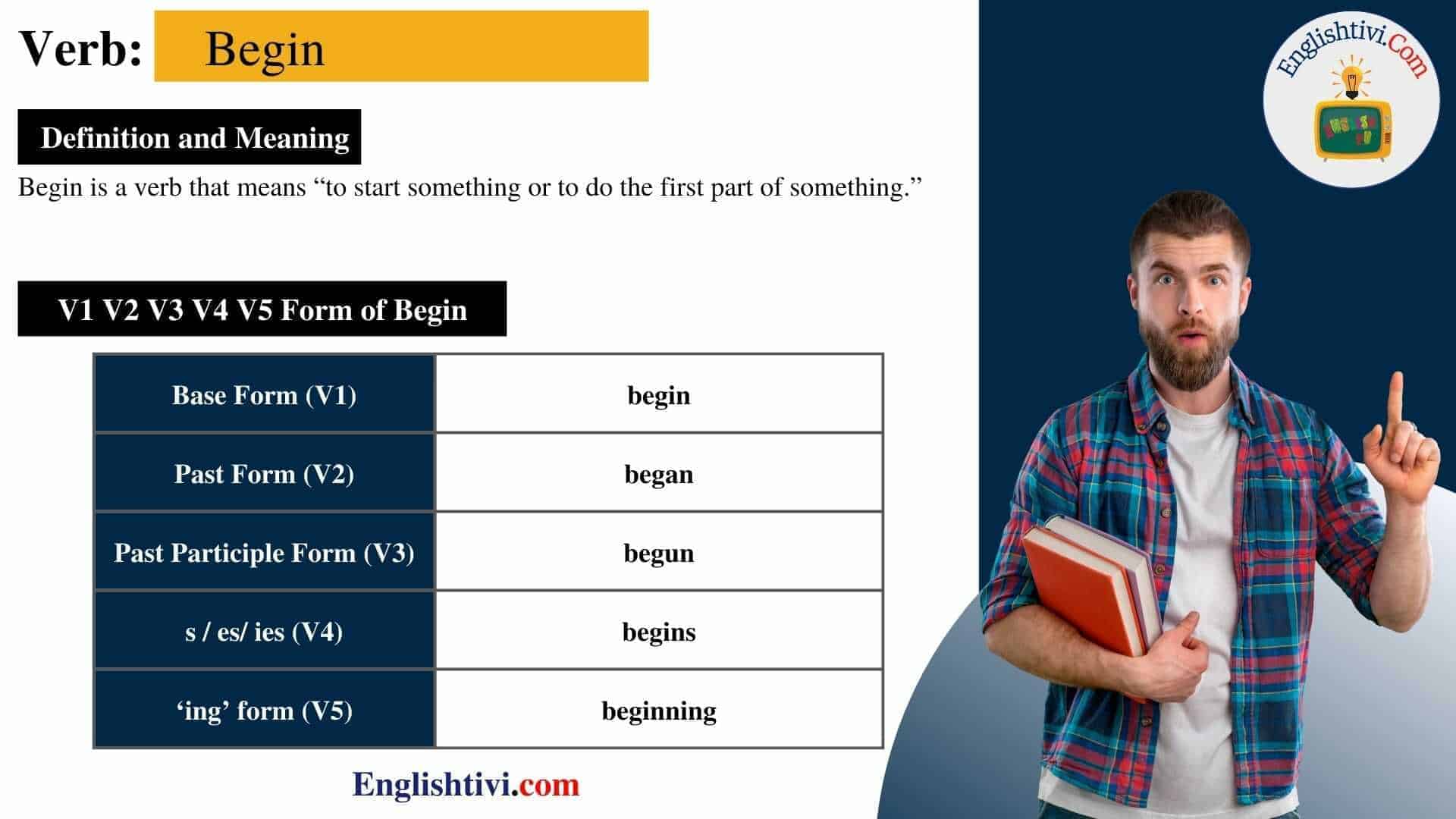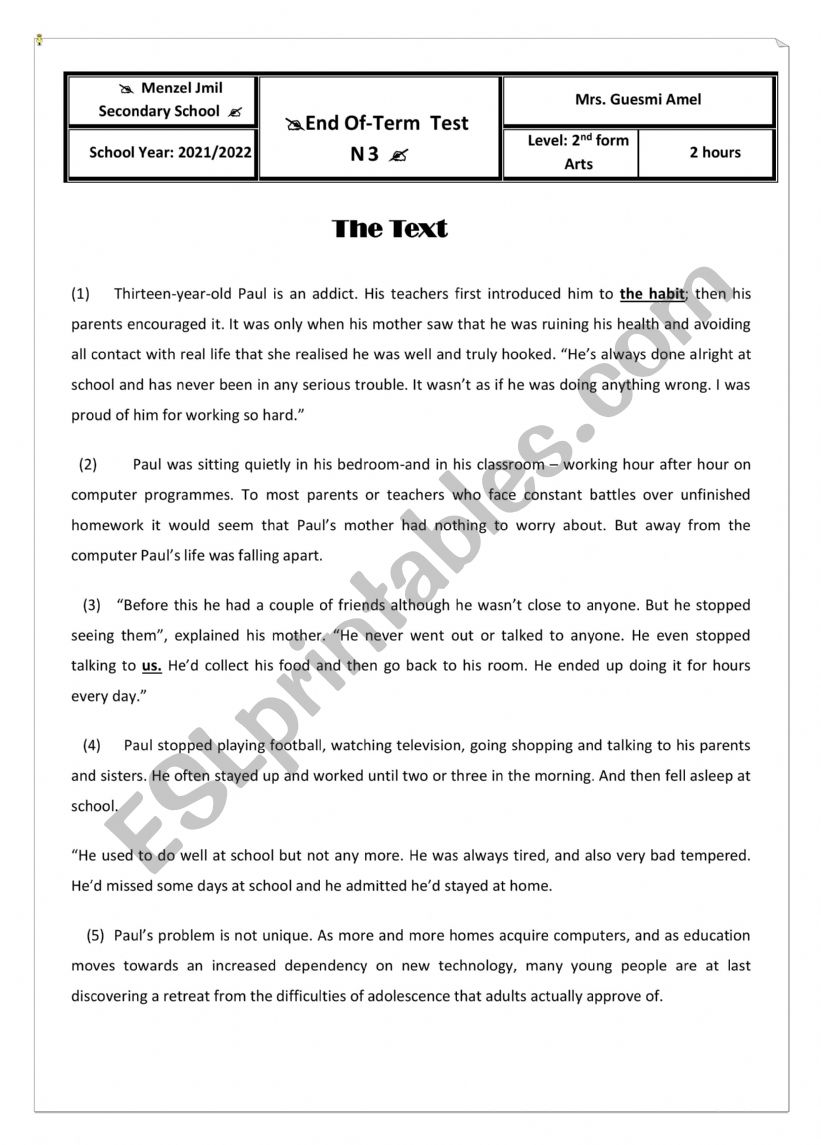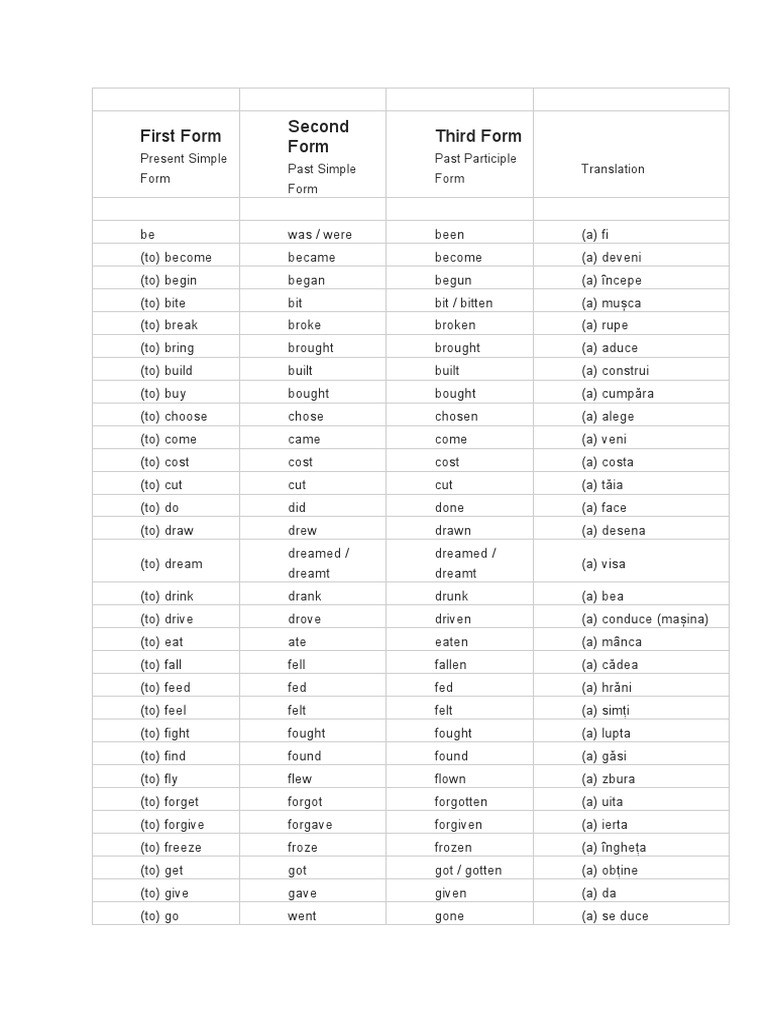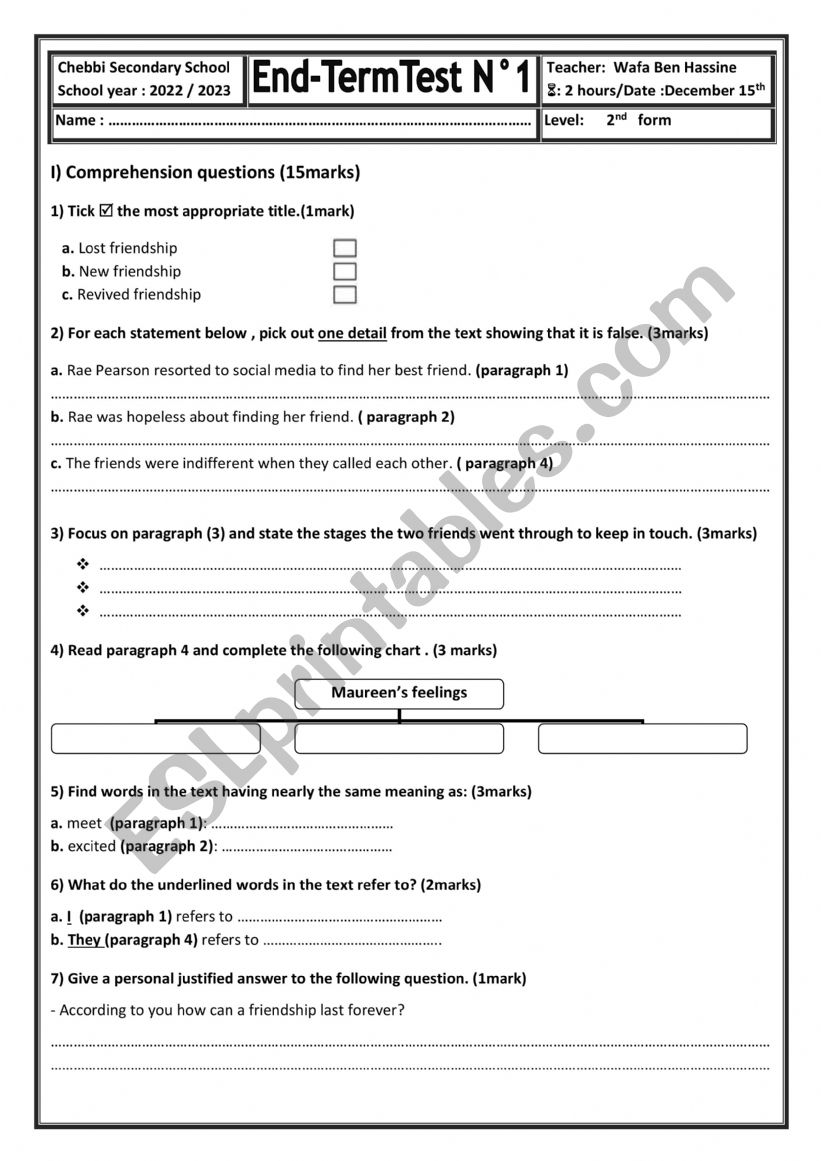
Midterm test 3 (second form… English ESL worksheets pdf & doc
The standard spelling for both is the present tense form (start and begin). Understanding Past, Present, and Future Tense for "Begin" While "begin" is a simple verb, whether transitive or intransitive, your tense when writing the word also changes depending on the context. The present tense form for "begin" is simply "begin."

Begin V1 V2 V3 V4 V5 Base Form, Past Simple, Past Participle Form of Begin Englishtivi
Learn the three forms of the English verb 'begin'. the first form (V1) is 'begin' used in present simple and future simple tenses. the second form (V2) is 'began' used in past simple tense. the third form (V3) is 'begun' used in present perfect and past perfect tenses.

MidTerm Test N°2 (second form) English ESL Worksheets for distance learning and physical
To Begin Infinitive: to begin Gerund: beginning Past participle: begun Simple past: began Irregular forms Auxilliary verb Spelling change Use contractions Indicative Present I begin you begin he/she/it begins we begin they begin you begin Preterite I began you began he/she/it began we began they began you began Future Perfect Present Past Future

Begin 3 формы глагола в английском языке Спряжение в прошедшем, настоящем и будущем временах
begin verb conjugation to all tenses, modes and persons. Search the definition and the translation in context for " begin ", with examples of use extracted from real-life communication. Conjugate also accommodate , trip , arm , prohibit , oversee , harbor , manufacture , adjust , outweigh , disperse

Childes second form fanart hes so crusty Genshin_Impact
"Began" is its simple past tense form (describing the time before you are reading or speaking, for example). "Begun" is the past participle form. Along with helping verbs, "begun" is used.

VBA Access the button on the form working (only once) ater that its not responding Stack Overflow
past tense of begin is began. Begin verb forms Conjugation of Begin Simple / Indefinite Present Tense He/She/It begins . I begin. You/We/They begin. Present Continuous Tense He/She/It is beginning. I am beginning. You/We/They are beginning. Present Perfect Tense He/She/It has begun. I have begun. You/We/They have begun.
Past simplesecond form Crossword
verb OPAL S /bɪˈɡɪn/ /bɪˈɡɪn/ Verb Forms Idioms [intransitive, transitive] to start doing something; to do the first part of something Shall I begin? begin at something Let's begin at page 9. begin with something I'd like to begin with a simple question. begin by doing something She began by thanking us all for coming.

end of term test second form ESL worksheet by Amel amami
Verb; Begin Meaning; start, commence V1, V2, V3, V4, V5 Form of Begin Synonym for Begin start commence get going come on cut along launch initiate open the ball attack set to settle down to address oneself to approach interfere embark upon Opposite of Begin Advertisements complete serve out integrate come to an end finish be at an end fulfill

Contoh Simple Past Tense Pengalaman sudah benar
Simple Past (Second Form): began Past Participle (Third Form): begun Base Form (First Form): begin Meaning: To start or commence an action, process, or event. Let's begin the meeting by reviewing the agenda for today. The chef will begin preparing the special dish for tonight's dinner service.
Past simplesecond form Crossword
V1: Begin V2: Began V3: Begun V4: Beginning V5: Begins The Past Tense of "Begin" The past tense of " begin " is " began ." This is used when referring to an action that started and ended in the past. For example: I began my project yesterday. She began her journey to Europe last year. The Past Participle of "Begin"

First Form Second Form Third Form PDF
The Department of Education officially launched the new FAFSA form this week, about three months later than its usual Oct. 1 date. The period leading up to and following Dec. 31 is serving as a.

Second Form YouTube
Verbs: basic forms - English Grammar Today - a reference to written and spoken English grammar and usage - Cambridge Dictionary

Second Form Latin Pronunciation CD Seton Educational Media
Tenses of ' begin '. . 1. To begin is the present tense: I will begin my presentation with an overview of the company's history. 2. Begins is third-person present singular: She begins each class with a review of the previous lesson. 3. Beginning is the present participle: We're beginning to get ahead of the score! 4.

Irregular Verbs Infinitive Second Form Third Form PDF
What is Verb first / (2nd) second form of Begin (Past) and (3rd) third form of Begin (Past Participle) in English grammar. See above verb Begin Second form and Begin Third forms [Began] [Begun]. View Recent Word Beat Begin Burst Buy Catch Choke Clean Die Eat Escape Evaporate Face Go Help Leave Lose Mark Meet

Claude Begin Age, Wiki, Bio, Trivia, Photos FilmiFeed
What is the first , second and third form of "begin" Indicative: Present I begin you begin he/she/it begins we begin you begin they begin: Past I began you began he/she/it began we began you began they began: Infinitive - Gerund: to begin - beginning: Imperative: begin let's begin: Participle: Present beginning: Past begun:

End term test 1 second form ESL worksheet by wafouta
/bɪˈɡɪn/ Verb Forms [intransitive, transitive] to start doing something; to do the first part of something Shall I begin? begin at/with something Let's begin at page 9. begin by doing something She began by thanking us all for coming. begin something We began work on the project in May.